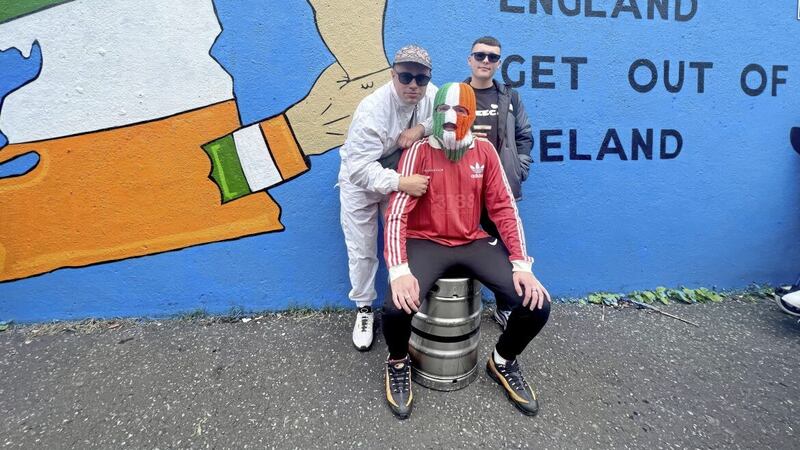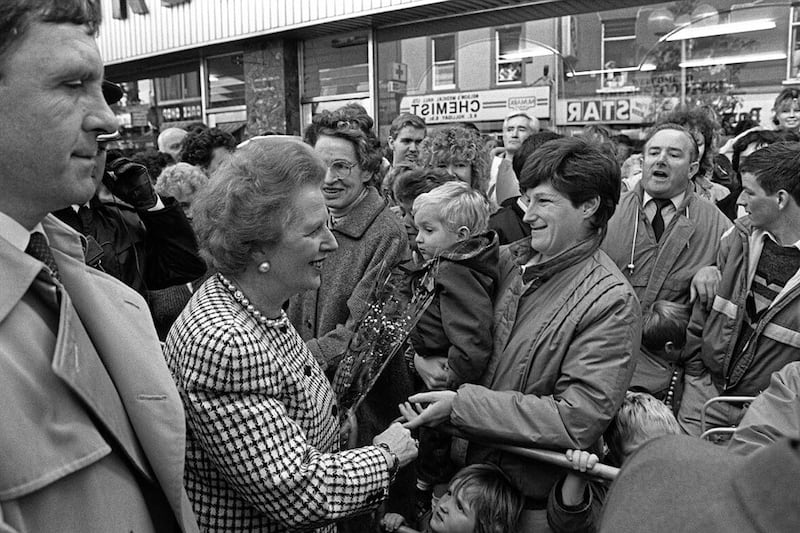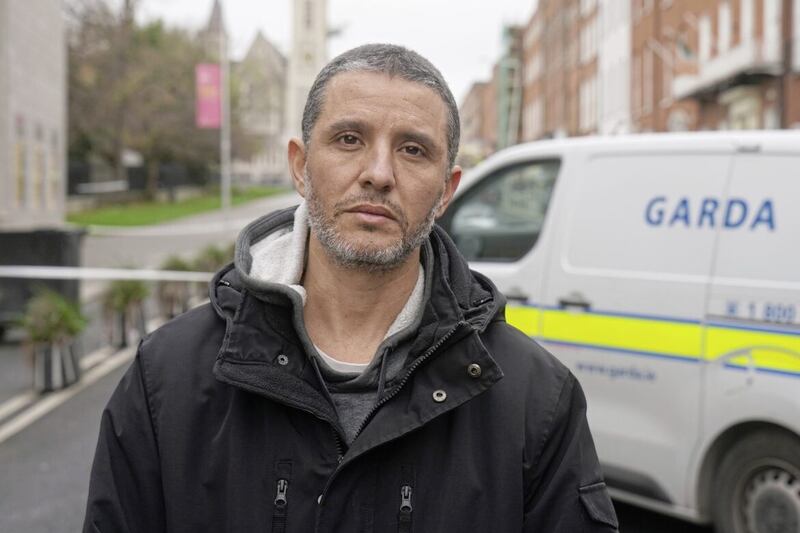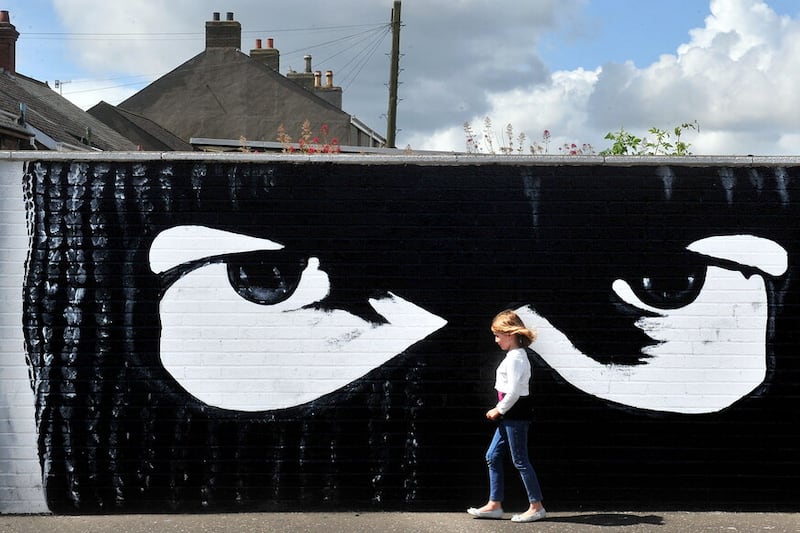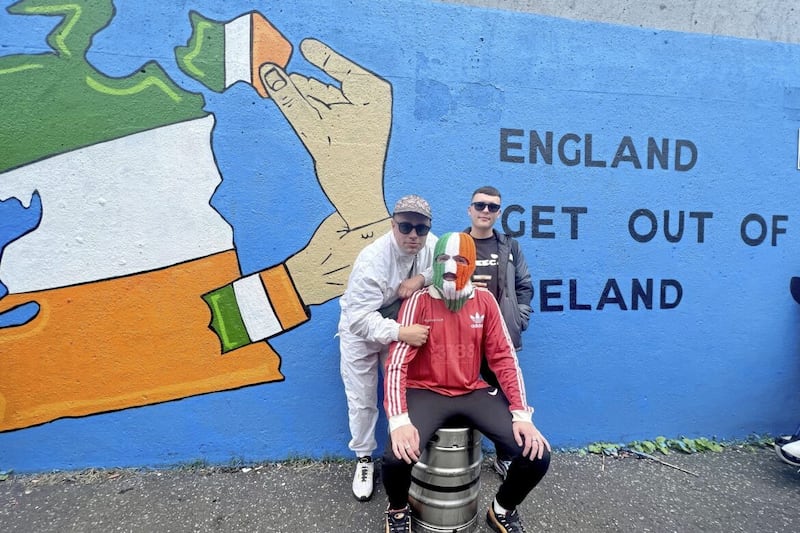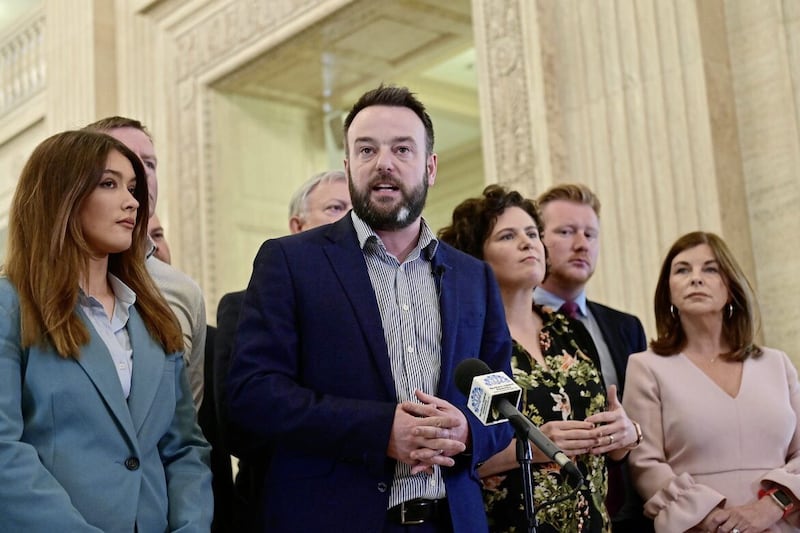IT was interesting to listen to a band member of Kneecap explain their lyrics and merchandising on Good Morning Ulster last week.
Hip hop is very much a cultural phenomenon across the globe. Despite the millions who follow it, there are those who don’t believe it is music at all.
Kneecap won’t float my boat when pitched against The Chieftains, Andrea Bocelli, Billie Holiday or Frank Sinatra. If Irish balladeers are required, there’s always Christy Moore, the Dubliners, The Corrs and The Cranberries.
Read more:
- Irish language rappers Kneecap branded 'sectarian and condescending', after posting video referencing fall from bonfire
- Kneecap sign record deal, dedicate it to Rónán Mac Aodha Bhuí
- Jamie Bryson accuses BBC of 'propaganda for a rebel band' after interview with Belfast rap trio
To their credit, Kneecap have been able to catapult themselves to success on the back of critics and their ‘in your face’ lyrics. If anything, they thrive on controversy. As the flamboyant, hell-raising writer Brendan Behan once said: “There is no such thing as bad publicity – except your obituary.”
So there’s little point in middle-aged musical purists having a go at Kneecap. There are worse and less melodious musical acts out there. Britain’s Got Talent is a case in point, where sad, bad and sometimes quite mad performers often compete in a talentless pit against other unaccomplished, third rate, questionable troupers.
Kneecap don’t pitch themselves to older audiences and rap such as theirs appears to be based on sloganeering and social issues.
To a younger generation, the lyrics are easy to repeat and the themes empathic. Just don’t expect the lyrics to stand the test of time.
Anyhow, it wasn’t Kneecap’s explanation (or indeed lyrics) which prompted this column. It was the reaction of a fan interviewed after one of their performances. This young lady claimed she took no offence at the tone or content at Kneecap’s gigs – after all, she too came from a Catholic/republican background and this was contemporary music of her tradition.
Remarkably, when asked what she would do if a hip hop band from the loyalist tradition tried to do the same thing, with potentially offensive lyrics towards Catholics, the young woman replied she would be annoyed as they were not from her own side.
She said: “There’s always a right side and a wrong side. An oppressor and the oppressed.” And obviously for her the right side in the north was the republican narrative. The oppressors, therefore were the British and unionism. The interviewer questioned her interpretation, pointing out that she held a masters degree in peace studies.
It was a revealing interview. Revealing in so far as to how ingrained stereotypes remain in a post-conflict society. Some members of the self-defined peace generation are at times blissfully ignorant of the past. Those who lived through conflict know only too well nothing was ever black and white. Wrong was done by all sides and all too often without much remorse.
Read more:
- Tom Kelly: As war rages in Gaza, it's time for politicians to take risks for peace
- Tom Kelly: When Stormont returns, the SDLP needs to up its game as the official opposition if it wants to survive
- Tom Kelly: Jeffrey Donaldson needs to emulate Peter Robinson, not Jim Molyneaux
Throughout the Troubles, John Hume was a constant voice of reason. His narrative helped shape a delicate peace process which then laid the foundations for a post-conflict society based on respect for diversity and difference. It was a message with resonated with the majority of those in his and my generations.
Hume denounced the blame-gamers and the advocates of ‘whataboutery’. He had little time for those who refused to see life from the perspective of another.
And yet, it’s clear in the BBC interview with the Kneecap fan that ‘whataboutery’ is all too alive.
There are political backsliders within elected unionism and nationalism who find it uncomfortable to fully commit to the post-conflict society as envisaged by Hume. They secure power by reinforcing and invoking old prejudices.
This is clearly having a corrupting influence on young people born after the Good Friday Agreement.
Perhaps as a society we should ask, as Bob Dylan did, “How many times can a man turn his head and pretend that he just doesn’t see?

